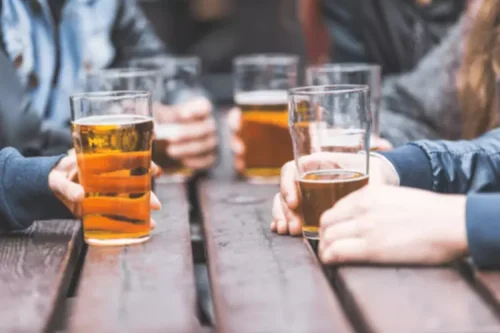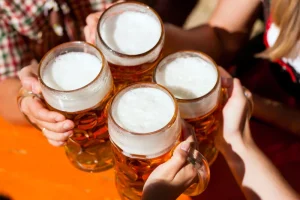Thus, goal setting is an essential process for your well being. During this stage you are not controlled by any substance, but are still at risk of succumbing to old desires and habits. To get the most out of this stage of recovery you will need to assess your new lifestyle and create goals that will help you continue moving forward. And while each treatment facility has overall goals for their clients, the best treatment facilities encourage the development of individual goals to make treatment personalized and recovery more sustainable.
Sticking to Your Recovery Goals
These urges and compulsive behaviors can control your life, but you can take back control. Relay’s addiction recovery program provides a comprehensive, outpatient approach to behavioral change – at home, at your own pace. Try the Relay program for free here; if you need help as you get set up, contact us now at
Importance of Goal Setting in Recovery
When you set an achievable goal, you’ll make the other changes that need to happen in your life to achieve it. Many people make new promises to their health and well-being at the beginning of the year. To emphasize the value of expanding access to treatment for substance use disorders (SUDs), SAMHSA is launching “SUD Treatment Month” in January.
SUDs are health conditions that typically develop over time in association with repeated substance use that changes the way the brain works. These changes can lead to compulsive cravings, reduced control over substance use, and continued use despite negative personal health and social consequences. Even when someone recognizes the harm caused by their substance use, they may struggle to manage or stop it.
- Engaging with support groups, seeking the assistance of a sponsor, or involving your loved ones can provide additional accountability and motivation.
- To maintain healthy growth, it is important to set realistic goals.
- The path to recovery is seldom straight, often filled with twists, turns, and unexpected detours.
- It’s important to start with manageable goals and gradually increase the level of difficulty or commitment.
- While each individual’s path is unique, there are general goals that can serve as beneficial landmarks.
Paying for Treatment
The first thing I noticed was that the facility looked exactly like it did in the photos online; the house was always immaculately clean. The staff were very kind and welcoming and helped me get adjusted to my new environment quickly. Over my stay here, everything was handled seamlessly from medication management to personal and family therapy sessions. Recovery began immediately with the first group sessions. And the incorporation of art, eco, music, drums, mindfulness, ACT, and movement therapies really made the experience truly wonderful and made such a positive impact on me. While your main goal will always be to practice abstinence from drugs and alcohol, the above goals are much less vague, and therefore easier to pursue and accomplish.
Our Approach
- As with any challenge, one of the ways to make continuous progress is to set tangible, measurable, realistic goals.
- Dr. Arnold Washton is licensed to practice in New York, New Jersey, and Florida.
- Relevant goals for recovery include ones that help a person get or stay sober.
- Call us today at (Direct) to get started on your path to long-term sobriety.
- They provide direction and structure, creating a framework within which you can work, celebrate progress, and realign when necessary.
Individuals who complete a treatment program with aftercare have higher success rates in recovery. This allows us to gain a deep understanding of each client’s unique goals. Based on this assessment, we develop personalized treatment plans. Treatment goals for substance use disorder recovery may need modification to address both concerns together. This ensures a comprehensive and integrated approach to treatment.
- Have you tried over and over again to get clean, only to find yourself continuing to slip back into your behaviors and patterns?
- It’s essential to personalize your goals based on your unique circumstances, needs, and aspirations.
- One way someone can set a time-bound goal is to work with a counselor to come up with realistic goals for when they want to reach each stage of drug addiction recovery within a certain treatment program.
- FDA-approved medications for AUD (MAUD) include acamprosate, disulfiram, and naltrexone.
We accept most private health insurance policies with out of network benefits. Stability in life often comes from being gainfully employed or actively engaged in educational pursuits. Consider vocational training or educational courses to improve your skills. Have you tried over and over again to get clean, only to find yourself continuing to slip back into your behaviors and patterns?
We understand that everyone’s situation is unique, and this content is to provide an overall understanding of substance use disorders. These disorders are very complex, and this post does not take into account the unique circumstances for every individual. For specific questions about your health needs or that of a loved one, seek the help of a healthcare professional. Santé Center for Healing can provide you with the help you need to move forward with life confidently and courageously. Our clinical staff of doctors and counselors will work with you on all phases of treatment to help you set goals for long-term recovery even after emerging from our residential treatment center in TX.
This is perfectly fine as long as the person is able to get back on track once things return to normal. By taking each of the five elements of the smart goals acronym, you not only establish a clear roadmap to follow, but in being so thorough, you set yourself up to inevitably achieve the goal. Our staff are highly trained with dual mental health and substance use licensing. Our medical staff includes an ASAM certified addiction psychiatrist & an addiction-trained primary care physician. My addiction has spanned over 3 decades of drug and alcohol abuse. Due to my addiction, it has negatively impacted my wife and four children.
Goal-setting is a crucial aspect of one’s addiction recovery journey.
Silver Ridge Recovery Clinical Services wants to help you break down those barriers and achieve recovery that lasts. Mental health goals can be fun, but they can also bring up past hurts. Be sure https://www.inkl.com/news/sober-house-rules-a-comprehensive-overview to schedule a healthy balance of reflection and recreation. Early recovery is one of the hardest challenges a person can face. The lingering effects of withdrawal, the constant cravings, the broken trust, the triggers in the environment around you — sometimes it feels like the barriers are endless. Our admissions team makes the onboarding process simple and hassle-free.
.jpg)
.jpg)
.jpg)









